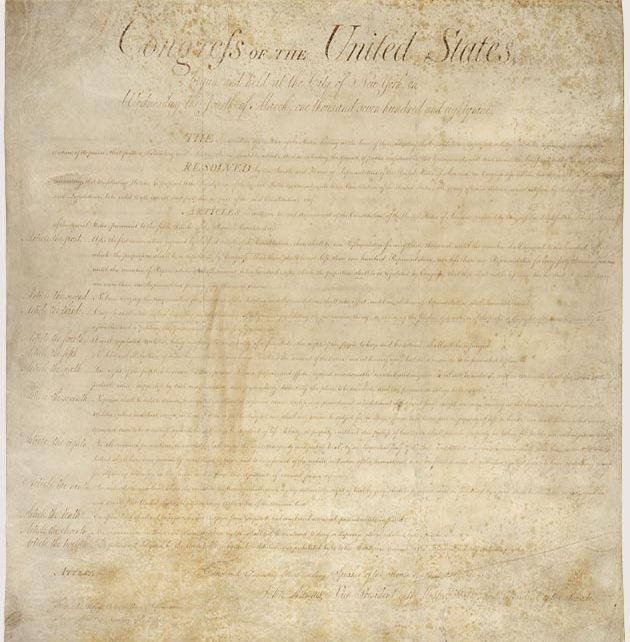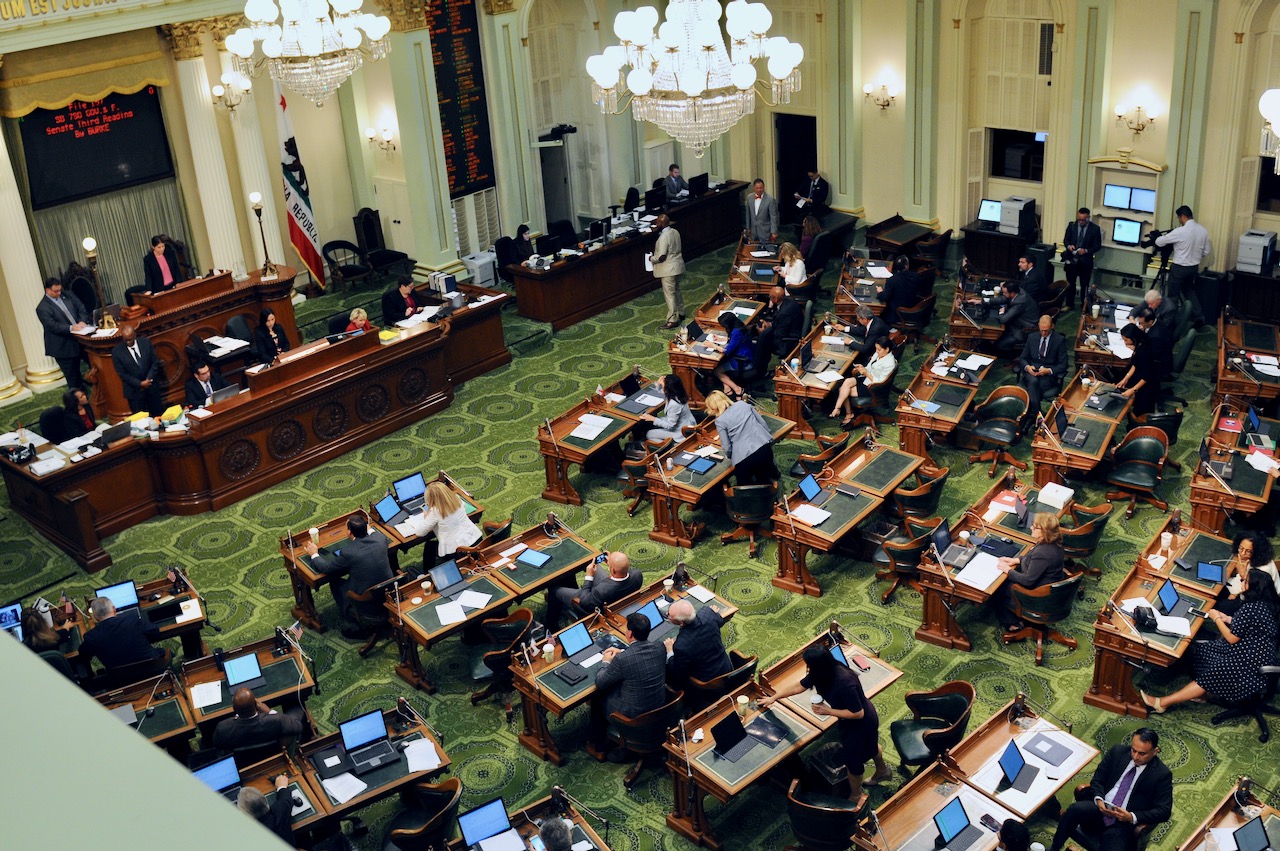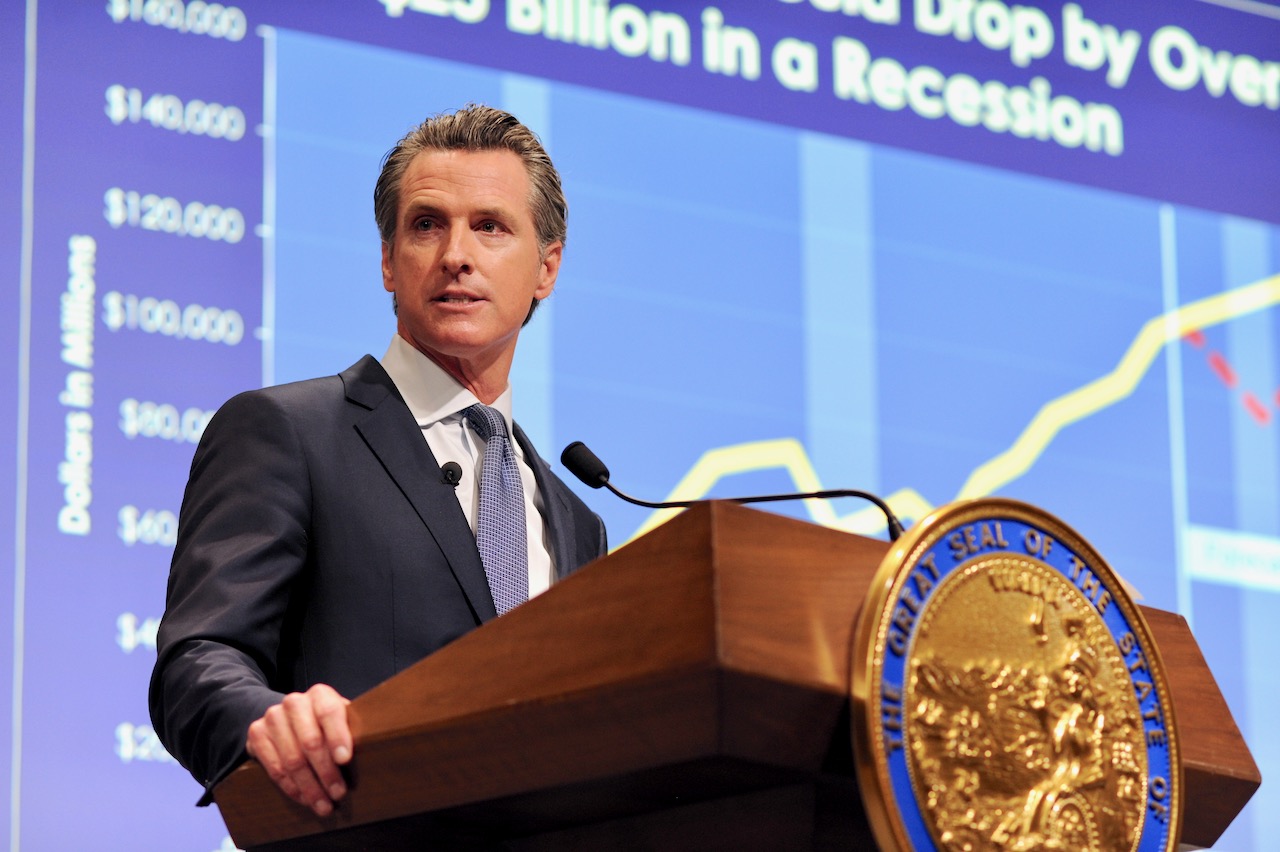
United States Constitution. (Photo: archives.gov)
Regulation, Censorship, and the Will to Power
At its heart, Chevron, which the court seems now leery of, is about enshrining the unchecked power of the state
By Thomas Buckley, March 27, 2024 3:47 pm
The will to power manifests itself in myriad ways. It can come from the the point of a pen or the point of a sword, from a ballot box to an ammo box, it can come from rules, regulations, and from the censorship of perceived or actual opponents.
In fact, consolidation of power often starts with censorship, the limiting of public discourse, the narrowing of avenues of public input, and the elimination of options to appeal decisions and dictats to supposedly higher, final authorities than the censors themselves.
The First Amendment of the United States Constitution enshrines freedom of speech as a fundamental right of all Americans and bars government agencies and officials from interfering with said right.
Then how it is possible that much of the United States Supreme Court seemed to be unclear on that fact during oral arguments Monday in the case of Murthy v. Missouri, the most important freedom of speech to be heard by the court in decades?
And how is it then equally possible that a clear majority of the same court appeared in January to be in favor of rolling back the “Chevron deference” precedent, a precedent that currently allows “expert” government officials to be regulatory judges, juries, and executioners?
While the cases may seem different, they are actually not.
Chevron, as it stands, enforces deference to agency expertise regarding the interpretation of the law.
The very concept of censorship inherently demands deference to government expertise regarding the interpretation of the truth.
At its heart, Chevron, which the court seems now leery of, is about enshrining the unchecked power of the state. Government censorship, which the court distressingly seems understanding of the need for, at its heart is about enshrining the unchecked power of the state as well.
Eliminating Chevron but allowing censorship are conceptually antithetical to each other and should not be able to occupy the same basic legal framework or theory.
In Murthy, the plaintiffs – two states and a number of private individuals – contend that various and sundry government agencies have engaged in the flatly unconstitutional censorship of a wide array of opinions, ideas, and proposals.
Since filing the suit, the plaintiffs – by gathering documentary evidence and taking depositions have unquestionably found that various government agencies did in fact violate the First Amendment in its so-called battle against “misinformation” surrounding both the pandemic response and the 2020 presidential election.
Over the past five years, officials with a number of different government agencies – or their direct, publicly funded surrogates in the nongovernmental organization netherworld of academia and foundations – demanded/chided/coerced/threatened private social media companies to remove ideas, thoughts, opinions, arguments, and even actual facts the government found problematic.
This censorship-industrial complex is laid bare in the “Twitter Files” which conclusively show said complex demanding social media companies remove and/or suppress “tweets” it did not like .
It may have also forced other actions, like the suppression of the extremely embarrassing – to Joe Biden – story about what was found on his son Hunter’s laptop.
That suppression, according to post-election polls, specifically and directly changed the result of the 2020 election. This ongoing effort has become the key part of the Biden administration’s attempt to control the public discussion surrounding its policies and programs, which is something no American government is allowed to do.
Nor can a government agency make a putatively private group do something which the government agency is barred from doing itself. It is that simple.
During Monday’s hearing, the government attorney, defending the censorship program, argued that it is not engaged in censorship but merely getting the word out about its plans and programs; for example noting that a government official is perfectly allowed to call a reporter to express displeasure about an article or segment.
A pair of justices – Elena Kagan and Brett Kavanaugh – seemed to take that line of reasoning to heart, both saying they’ve complained to members of the press in the past and that is not censorship.
True, that act is not censorship. But that line of reasoning – which should have been seen by every justice as a petty deflection – denies the reality of extant power relationships and completely misses the point of lawsuit, the facts behind the lawsuit, and the nature of free speech itself.
For example, in local media, outlets and reporters may find themselves the object of the wrath of a local sheriff for a negative – yet truthful – piece. And, as has happened more often than one cares to admit, said sheriff will cut off all information from the outlet, have deputies trail staff looking for minor traffic infractions, etc. – in other words, the reporter, newspaper or website or station will not be able to do its job of informing the public properly.
This blackout can lead an editor or a publisher to suggest a “happy” story about the sheriff or a charity the sheriff is involved in or what have you to mend fences to let the media outlet get on with business as usual.
In the case of Murthy, what is at stake for both the government agency and the company is orders or magnitude more dangerous than an irritated sheriff. Social media companies are regulated and taxed by the federal government and, most importantly, protected by the federal government by being deemed not “publishers” and therefore shielded from a whole swath of potential site content-related legal actions.
In other words, the social media companies that were pressured/coerced by the government to make sure opinions about pandemic masking and pandemic voting systems conformed to government limits did so because of the enormous and direct government power over the very existence of the companies.
But much of the court seems to at least entertain the government’s argument that it did not violate the First Amendment because it didn’t “coerce” or “make” any private company or group do anything.
This is patently absurd. Even if the numerous government actors did not continually and specifically detail (some did) what could happen if the companies did not comply, the threat was clear and compelling.
It the height of obtuse pedantry to suggest censorship did not occur because an email did not contain the words “you must or we will close you down.”
On a playground, if a bully stands glowering over a victim hapless on the ground he has no need to actually physically say “stay on the ground.”
The kid just knows better than to get up.
To dismiss this fear of the social media companies – as did Kagan and Kavanaugh – is to intentionally inhabit a completely separate reality and clearly show oneself as possibly being merely a creature of the state, no matter political ideology.
And to paraphrase the late P.J. O’Rourke, because of the power inherent in the state, in the end all government rules, regulations, suggestions, requests come from the barrel of a gun.
At least one justice veered even further from the black letter text and 200 years of case law regarding the first amendment.
The unconscionable Justice Ketanji Brown Jackson expressed her worry about the “…First Amendment hamstringing the government in significant ways in the most important time periods.”
It is for exactly those times of stress that the constitution was created, to ensure that no matter what the issue of the day may be there are absolute lines the government may not cross.
During her confirmation hearing last year, Brown Jackson struggled to answer the question “What is a woman?” It appears that she should have been asked “What is an inalienable right?” though she most likely would have struggled with that definition as well.
In fact, the reasoning behind Brown Jackson’s jackboot extremism has already been shot down by various courts. Last fall, a California federal judge held that a state law that forced doctors to relate only approved and official covid information to their patients was grossly unconstitutional .
The law allowed the state to pull a doctor’s license if they contradicted the received “wisdom” about covid, no matter that said “wisdom” changed repeatedly and was, almost assuredly, not very wise to begin with.
From her statements, in can be concluded that Brown Jackson would have allowed the law to stand, a devastating blow to the heart of the doctor/patient relationship: trust.
The censorship push has been typically couched in terms of eliminating “misinformation.” Misinformation does not in fact exist, the term created to fool the gullible and give the censors free reign to declare any and everything they did not agree as subject to eradication.
One of California’s most ardent censors – Los Angeles County public health director Dr. (not a medical doctor) Barbara Ferrer even admitted in court that, to a large extent, “misinformation” is in the eye of the beholder.
“I think misinformation to me and misinformation to you would – it’s completely possible that they would be two separate things,” Ferrer testified in court in a case ( which, sadly, another reality-challenged judge found in favor of the government ) involving her department squashing public speech criticizing her handling of the pandemic.
In other words, the misinformation rubric the federal censors are claiming justifies their censorship effort is a house of cards built on quicksand, held up only by a lie.
The government censors, it must also be noted, have already moved further toward complete control than the court seems to be aware of. For example, the term “cognitive infrastructure” is now bandied about government and foundation hallways to describe how a nation thinks.
And if how a nation thinks is mere infrastructure like highways, then why can’t there be speed limits and patrol cars there, too?
While it seems different, Chevron has much to inform the censorship debate (an issue there should be no debate about in America, by the way.)
In January, the court heard oral arguments in a pair of cases involving “Chevron deference.” The majority of the court clearly seemed to indicate that that 40 year old precedent – which states that the opinion of a government agencies should take legal precedence in a regulatory dispute in the matter of interpreting legislation – should be placed in the ashcan of legal history.
Chevron, in a nutshell, is based on the concept that government regulators – as experts in a particular field – are better than judges in determining breadth and intent of a law when the law itself is silent on the specific aspect of the law at issue.
Essentially, government regulators may enforce, expand, interpret, condense, zealously apply or limit the breadth of a law because they are best able to understand the particulars involved and the benefits to society in general when applying said regulations.
Chevron is widely expected to be overturned. In other words, the court – Kavanaugh very much included, though Kagan may dissent – will almost certainly hold that the whims and opinions of government regulators are not the final word, no matter how expert they consider themselves, when parsing laws passed by Congress.
This may be at least in part due to the actions of numerous federal employees – Drs. Anthony Fauci, Deborah Birx, and Francis Collins for three – during the pandemic response that clearly and definitively proved that regulators and administrators may not actually be the experts to be relied upon in case of an emergency.
And that is at the core of both cases: is the federal government the be all and end all of American existence?
Under the cover of covid and through the whole-cloth creation of the very idea of “misinformation” , the government has endeavored to become the final arbiter of truth and – through its dominion over numerous private organizations – the implementer of that single truth and destroyer of every other thought, idea, concept, fact, or opinion.
The majority of the court appeared to favor eliminating Chevron. It would be the height of hypocrisy – and one the most culturally devastating decisions since Dred Scott – to not see the parallels and to rule any other way than against the government in Murthy.
With that ruling, we can begin to gather in the tentacles of the censorship monster.
Without, America is in danger of being consumed by the monster.
- Reedley ‘Lab’ Prompts Legislation - April 26, 2024
- USC Cancels Graduation - April 26, 2024
- Where Does Gascon Go From Here? - April 25, 2024





Thank you for your fine coverage of this. I have an understanding of the importance of these cases that I didn’t have before. Fingers crossed.
Sounds a little like regulatory or agency capture, where government becomes beholden to industry insiders who wish to dominate the market and guide the regulators, by cooling off their rampage. In this case, the regulators actually think they don’t need the insiders anymore. And in that case, they foolishly regulate the true free market into a revolution. This paper is a pep talk. Thank you Mr. Buckley.